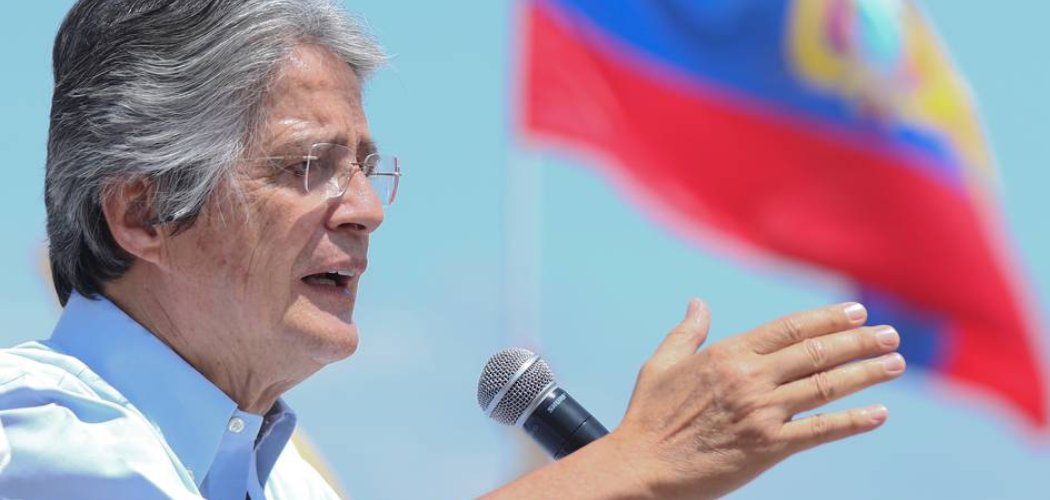Por Alberto Giovanelli
El ballotage entre el economista correísta Andrés Arauz y el banquero de derecha Guillermo Lasso culmino con el triunfo de este último por una diferencia de entre 4 y 5 % de los votos. Arauz y Correa ya reconocieron el triunfo de Lasso y le desearon éxito en la gestión.
En los próximos días seguramente los compañeros ecuatorianos avanzaran en el análisis del resultado electoral, sobre todo porque hasta hace no más de 10 días se descontaba el triunfo de Arauz, después de haber sacado mas de 13 puntos de diferencia en la primera vuelta tanto a Lasso como a Yaku Pérez, el candidato del movimiento indígena del partido Pachakutik.
Lasso asumirá el gobierno en reemplazo del ex delfín del propio Correa (recordemos que fue durante 6 años su vicepresidente) Lenín Moreno, el presidente que será recordado como uno de los peores de la historia ecuatoriana, quien deja una economía en números rojos: en 2020 el PIB retrocedió un 7,8% y la deuda pública total alcanzó el 63% del Producto Interno Bruto, pero además en medio de la crisis que desató el Covid 19 donde Ecuador junto con Perú han demostrado ser los países mas vulnerables en América Latina frente a la pandemia y el país que menos ha vacunado. Los mas de 20.000 muertos son la triste muestra de la desidia y el abandono gubernamental.
El nuevo escenario
El nuevo presidente deberá buscar alianzas con los demás partidos para poder tener aprobación en sus proyectos de ley por parte de la asamblea, dado que la mayoría de asambleístas pertenecen al bloque del correísmo, seguidos del partido Pachakutik e Izquierda Democrática, partidos que en esta segunda vuelta expresaron no estar a favor de Lasso. Esto explica el alto porcentaje de voto Blanco ó nulo que llego al 18 %.
Ahora bien, en artículos anteriores expresamos nuestra opinión contraria a generar expectativas en un hipotético retorno del Correísmo. Después de la primera vuelta el giro al centro del propio Arauz fue aún más evidente. La justificación es la misma que hemos escuchado tantas veces, «no queremos asustar al electorado», y por eso asumió públicamente el compromiso de negociar con los acreedores internacionales el pago de los más de 52.000 millones de deuda externa, sostuvo siempre la dolarización de la economía que se aplica desde fines de los 90, a partir de los consejos del ex ministro argentino Domingo Cavallo.
Durante la campaña electoral Araúz tampoco pudo romper el recuerdo de las faltas de políticas combinadas con represión que se ejercieron durante el Gobierno de la Revolución Ciudadana hacia el movimiento indígena ni hacer creíbles sus promesas para otros sectores que enfrentaron al correísmo como por ejemplo el sector educativo y de salud.
Una vez mas ha quedado demostrado, por si hiciera falta, que no hay atajos, que no hay males menores, que cada uno de esos caminos nos conducen inevitablemente al precipicio. Sin una política y un programa claramente anticapitalista, todas las demás alternativas nos llevarán inevitablemente a nuevas frustraciones y decepciones.
Pero también entendemos que el gobierno que surge será indudablemente un gobierno débil porque persisten y se han agudizado las razones del estallido de fines del 2019, por lo que estamos convencidos que no hay posibilidades que Lasso aplique su programa neoliberal sin que haya una movilización nacional que lo enfrente en las calles. Por eso entendemos que el signo de la próxima etapa continuará siendo el de la inestabilidad política.
Frente a este panorama la tarea urgente para los socialistas revolucionarios de ecuador es realizar un profundo balance de lo sucedido, sacar todas las conclusiones necesarias sobre a donde conduce el apoyo a proyectos que ya se han demostrado que solo conducen a reiterar los fracasos del pasado y abocarse a la construcción de una fuerte corriente anticapitalista. Desde la Liga Internacional Socialista estamos convencidos que existen inmejorables condiciones para avanzar en ese sentido.




